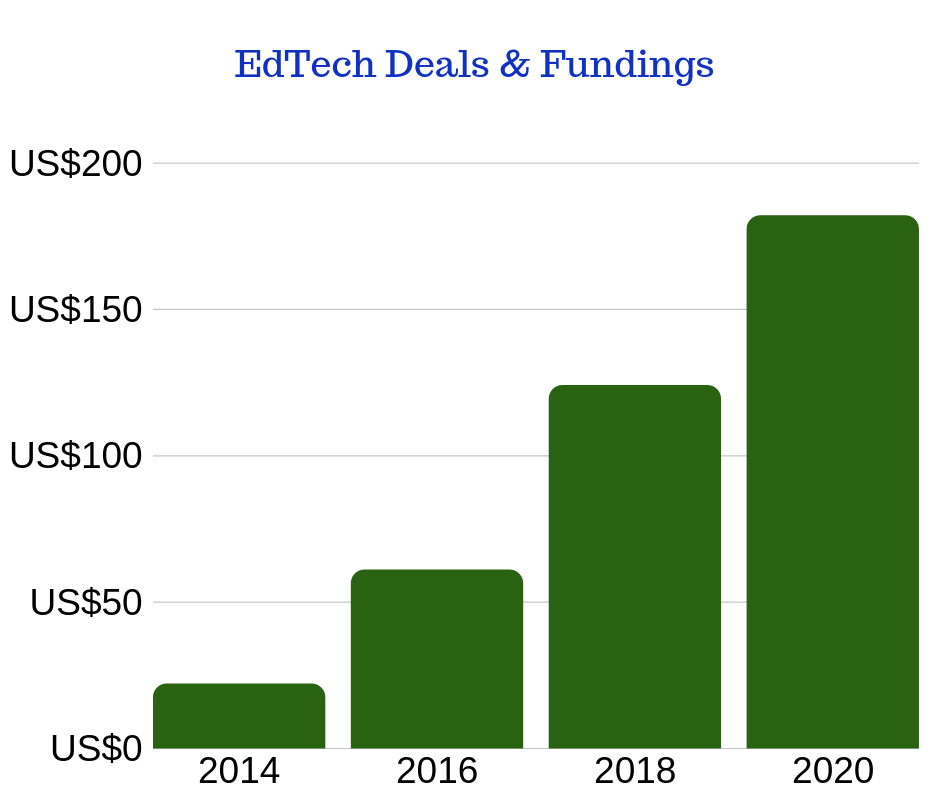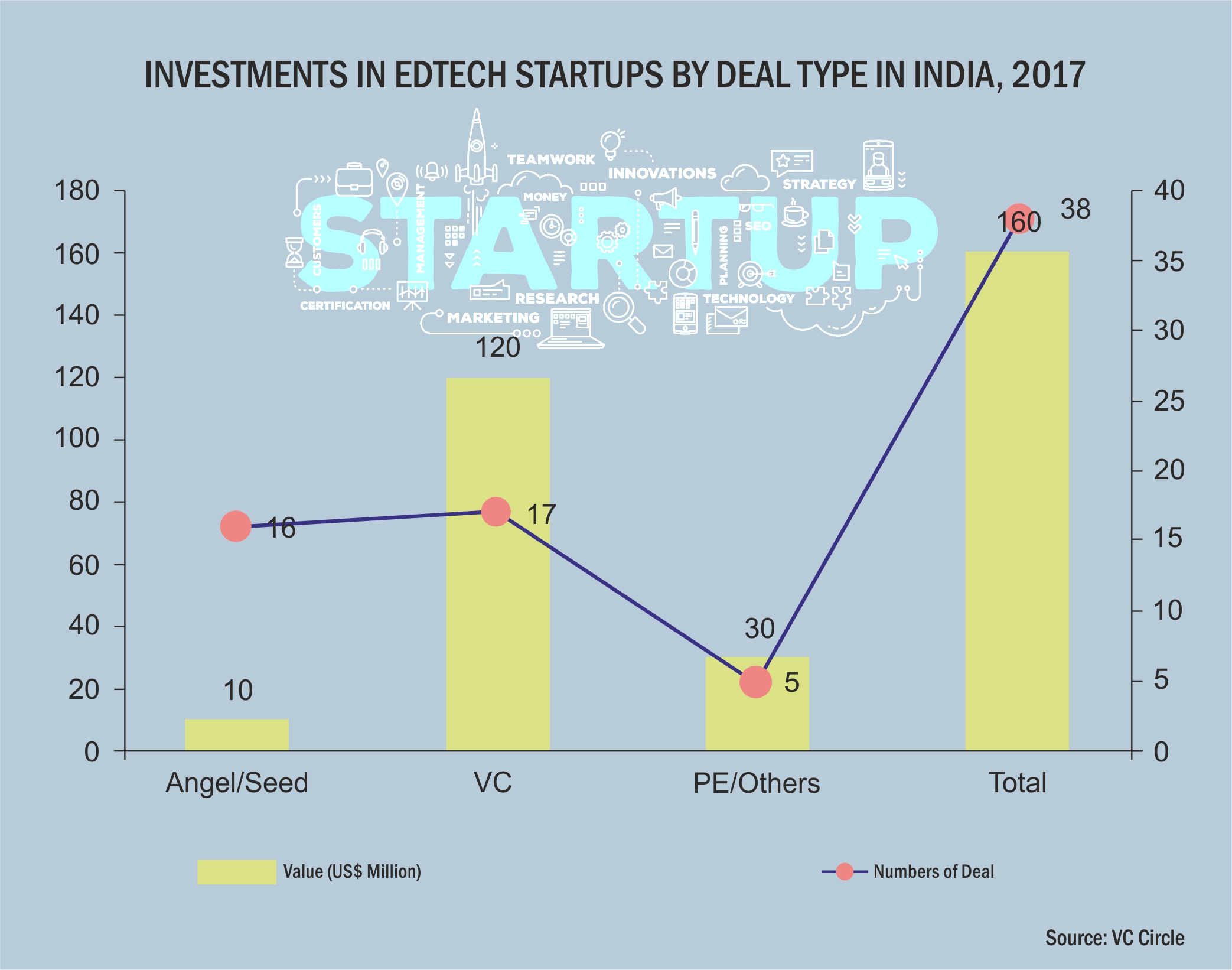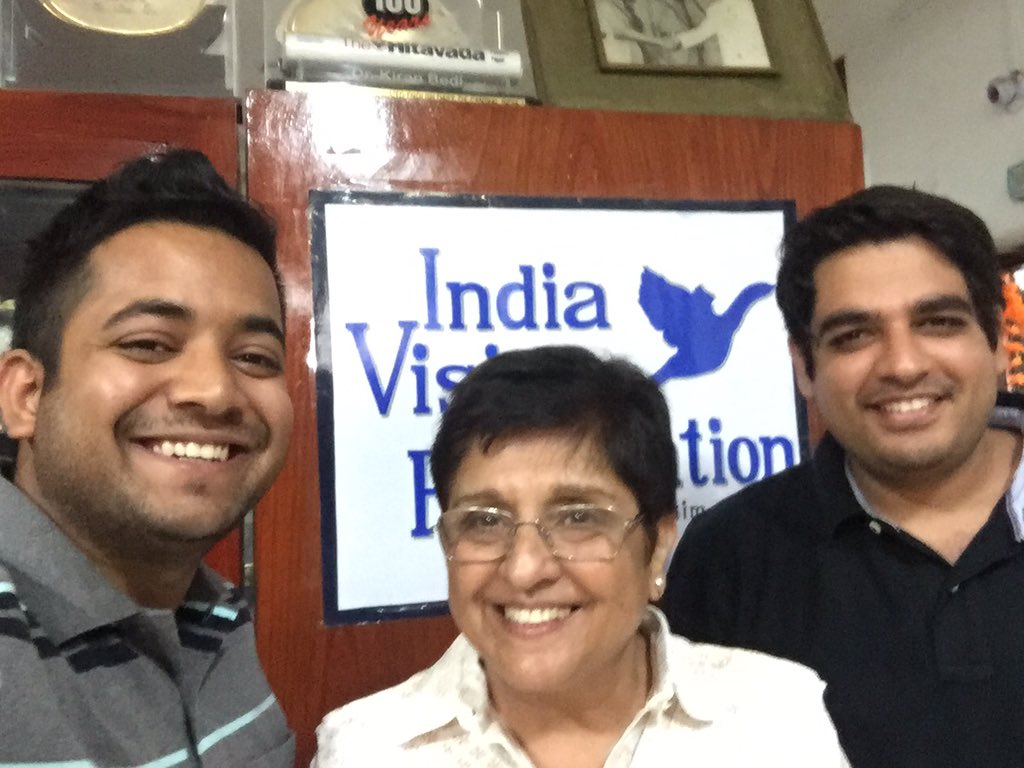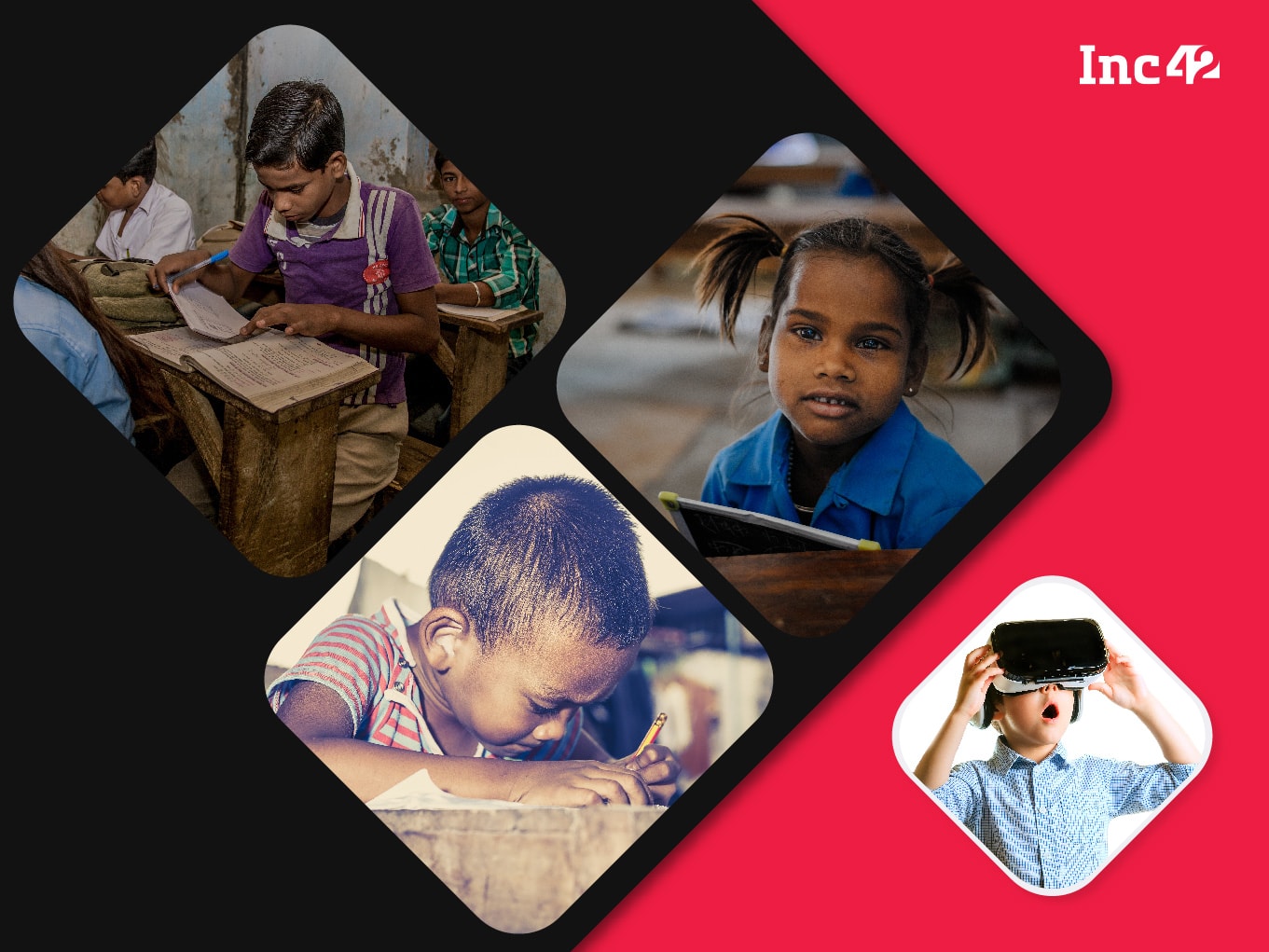The fast growth trajectory is prominent in Edtech sector. The startups and firms are contributing to the development of this sector. The students and aspirants are becoming more and more dependent on the e-learning platforms for acquiring knowledge as per their convenience. The articles delves much deeper into the intricate tapestry of digital platforms, digital classrooms, new methods of teaching and learning, that is shaping the Future of Education.
Do you want Kiran Bedi, the first woman IPS officer of the country to be your mentor and teacher? You can fulfil your wishes by registering in one of the leading online education sites (Edtech) in India. How? You will get the answer in the following paragraphs!
As an Assistant Professor of one of the reputed engineering colleges in West Bengal, I have witnessed a rapid shift towards the growing Edtech industry. The online course structures like MOOCs (Massive Open Online Courses) designed by Coursera, NPTEL (National Programme on Technology Enhanced Learning, an initiative by the seven IITs and IISc Bangalore) and SWAYAM (Stud Webs of Active-Learning for Young Aspiring Minds, a Government of India Initiative) add a new direction to the evolving Edtech sector in India. The students, as well as the teachers, took part in such online educational programmes for personal skill development and career growth. MAKAUT (Maulana Abul Kalam University of Technology) has included the online courses into the curriculum for imparting a holistic approach to education. Like MAKAUT, several colleges and universities in India and abroad are embracing technology for optimizing value addition in the educational sector.

Mindless inclusion of technology is also prevalent, unfortunately. Often education, just like religion and politics, takes the shape of business. Artificial Intelligence, Machine learning cushion an explosive growth in personalized learning trajectories. The Future of Edtech is certainly here, no doubt about the statement. But it also brings a gamut of challenges and not-so-rosy pictures. Edtech is not only for the students. It is for everybody, for students, teachers, parents, expert professionals, education enthusiasts and knowledge seekers of the various cross-sections of the socio-economic hierarchies. Smartphone penetration, internet explosion and digitization triggered the blossoming of Edtech in various parts of the world.
E-Learning Platforms Boosting Edtech
E-learning platforms are transforming the education sector in the country by bridging the gap between supply and demand. With affordable internet charges, even the rural sectors can use such platforms for personal and professional development. Language learning, online tutoring and technology skills development are the dominant themes in the education landscape of the country. The fast-paced emergence of Edtech has transcended beyond the classroom boundaries within no time.
As per the co-founder of UpGrad Mayank Kumar, the education system is evolving and attaining a more holistic approach. He added, “With industries directly connecting with e-learning institutions like ours, the content has never been so up-to-date. All this put together makes e-learning platforms complete, and students and working professionals future-ready, in a matter of months.” Kumar also said that the eLearning penetration is observed in various large and medium-sized organizations for a cost-effective mode of skill development and training sessions.

According to a report by KPMG, the Indian Edtech sector will grow from 1.6 million users in 2016 to 9.6 million users in 2021. In the current scenario of technological disruption, the professionals have to re-skill themselves every 4 to 5 years for being relevant to their existing job roles. As already hinted, the Government of India is taking a lot of initiatives to boost and accentuate the e-learning sector. Thus it is adapting to the technological revolution. As per the MD of Pearson India Mr Vikas Singh, “E-learning platforms are bringing a measurable difference in students’ engagement and performance. It is reducing gaps in the delivery of education and giving a new dimension to the education space.”
According to a renowned educator Mr Welton Fitzwater, “The Future of the world is in my classroom today.” The statement is true to its core with the emergence of the new-age classroom in the era of Digital Transformation. Edtech is one of the major sectors that have been affected by digitization. The multi-channel approach to the education sector has enabled the students to gain knowledge via various mediums besides classrooms, like smartphones, desktops, laptops, tablets etc.
The students are accessing devices to gain knowledge, triggered by this rising demand, several educational institutions. Edtech startups and firms are launching their sites and apps, online tutorial videos on YouTube for harnessing this rising demand. The first of its kind was Khan Academy which started since 2006 to bring the education online, easily available and accessible to all. This organization started its journey by airing short lessons on YouTube channels, now it has an app as well. In 2018, it won the Google Play Best Social Impact Award for helping the students gain in-depth lessons take part in quizzes and self-assessment exercises in various subjects.

Edtech Startups Shaping Education Sector
In 2015, Unacademy launched its app and sites for providing content required to crack major competitive examinations like UPSC, SSC, CAT, GRE, GATE, CA, JEE, class X and XII board examinations etc. Here, you can learn from Kiran Bedi and many other influential personalities. With over 13 million subscribers and 10,000 educators, this platform has proved to be something the students need. In 2019, Unacademy collaborates with TVF and presented Kota Factory, the most loved and reputed web series dealing with the experiences and dilemmas of IIT aspirants.
The platform has added another feather to the hat by closing a $50 million Series D funding from Steadview Capital, Nexus Ventures Partners, Blume Ventures and Sequoia India. According to Gaurav Munjal, co-founder and CEO of Unacademy, “We are seeing unprecedented growth and engagement from learners in smaller towns and cities, and are also very humbled to see that top-quality educators are choosing Unacademy as their primary platform to reach out to students. The funds will be used to onboard more educators, fuel growth across multiple exam categories and build a world-class product and team.”

In 2015, another name in the Indian Edtech segment is that of BYJU’S. With around 16 million school students of secondary and higher secondary level registered on this site, it helps in preparing for the board exams, and also NEET, GMAT, CAT etc. The founder Byju Raveendran takes online classes for students besides other teachers. It also imparts tricks and tips from IAS toppers for the IAS aspirants. Shah Rukh Khan’s promotions of BYJU’s have spread like wildfire among the masses.
Coursera, an American online learning platform founded in 2012, entered India in 2015 after collaborating with Indian School of Business. It offers advanced courses like computer science, data science in partnership with various global universities like the University of Michigan, Stanford etc. One can get certificates after the completion of the courses. Online classroom tutorials and study materials are available for the learners. According to its CEO, Jeff Maggioncalda, “India is the second-largest country after the U.S. in terms of a number of users on the platform, and it is betting on a freemium model to boost its business in the country.”
All such online platforms and learning sites contribute to the fast-growing Edtech sector of the nation. Besides the online platforms, schools and colleges also take part in the educational revolution. They are making a huge monetary investment for developing infrastructures, for example, smart classrooms, projectors etc. The schools are finding it hard in implementing the emerging technology amidst dilemma rising from the expectations of the parroting parents. The traditional methods of pedagogy, standardized norms of tests and examinations, and the future of employment are giving rise to some confusions in the Edtech sector.
Role of Schools in Edtech
India has the largest number of schools and school goers. The schools often face a challenge in maintaining the international standards, in imbibing technology with pedagogy, mathematical and scientific skill development, reasoning and communication and language skills. The gap created between the demands of the students and the schools’ performance is bridged by the Edtech startups of various shapes and sizes across the country.
As per an experienced teacher of one of the most reputed private schools of India, “Things have changed but not by much. Tech is available for everyone and it is easy to build smart classrooms but the minute these panels or projectors are switched on kids take it as a TV show.” There are several factors that are posed as road bumps for the Indian private and elite schools who can afford the technological inclusion in classroom teaching. The educators and operators of such schools face a lot of parental pressure. Some parents prefer traditional syllabus oriented education so that their kids can get “good jobs” in future.
While there is another group of parents who prefer the holistic approach to education for personal growth and skill development. Torn between these two kinds of pressures, the schools often find themselves in confusion and chaos. According to Amol Arora, MD of Shemford and Shemrock Group of schools, “If you see the number of Indian schools which are truly embracing technology, the number would be around just 2000 schools across the country. 3000, if we are being generous.”

The technocentric education system of schools seems to be a distant future. Out of millions of schools, only a minor portion can actually afford it. The schools of the rural and semi-urban areas, that consists of the majority of the Indian population, cannot imagine replacing the iconic blackboards and chalk with the glamorous and highly expensive whiteboards and markers. Elite schools charging annual tuition fees of Rs 2-7 lakhs opt for smart classrooms and development of infrastructures. With 700 premium institutions, India has outstripped China.
According to a report reviewed by Nobel laureate Abhijeet Bannerjee, “What the children or their parents will be paying for is partly the quality of education, but more importantly for the quality of associates the students are likely to find in this (private) school.” The schools are investing in technological infrastructure with the hope of higher returns. The shift of the business model from the traditional old-school learning to tech-driven lessons will create a deeper social polarization among the students at a very young age.
According to the COO of BYJU’S, Mr Mrinal Mohit, the education system in the new era will become phygital, which refers to higher-tech inclusion in the classrooms. The means of gaining knowledge has changed for sure, but have the assessment models really changed? The examination patterns, question papers, assessment models, they remain the same following decades-old structures. No matter how engaging and interactive the online classrooms are, no matter how colourful and vivid the pictures are on the screen, no matter how developed the AR/VR is, the Edtech is still now unable to transform the age-old examination system. Students are engaging in experimental learning, but the question paper is the same old one. Then, where is the point?
Conclusion
The schools are imbibing the technology for augmenting the learning experience, but leading to the same result, that is the same old examinations. The schools are not just the learning places; it’s the place of socializing, communications, and personal development.
Replace the blackboard and chalk with virtual reality headsets showing the alphabets and numbers. Replace the traditional home works with video watching sessions with eye movement trackers to monitor distractions. Replace the books and notebooks with ebooks, kindle and notepad. Replace the labs with virtual labs showing 3D pictures of human anatomy and chemical reactions. Replace the morning roll calls with face recognition software! Now replace the fun with last benchers, replace the gossip with friends, replace the scolding of the favourite teachers, and replace the annual school excursions! Can you? Unfortunately, the answer is NO. Edtech gives the means (video lessons) to an end (examinations). It is not the end in itself.
Traditional pedagogy will continue thankfully, giving the students a chance to paint the memories with beautiful and bright colours. Technological disruption has paved the way for the Edtech, making knowledge accessible to all. It is a good and noble initiate taken up by the innovative Edtech startups. But will it ever replace the traditional schools? Can Artificial Intelligence and Machine Learning replace the teachers?
I hope that day never comes.

